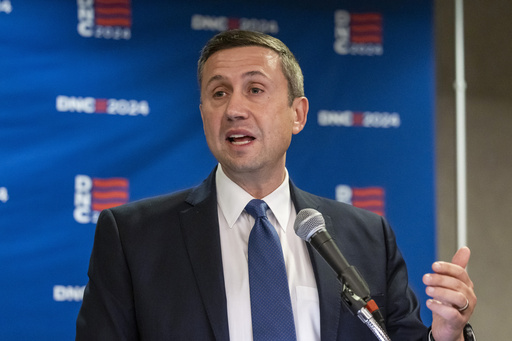NEW YORK — As the new year unfolds, Democrats are experiencing a wave of anxiety and disillusionment regarding their political future. Many party members are expressing concerns about the implications of their commitment to supporting diverse candidates, particularly women, in the context of ongoing political challenges highlighted by the era of Donald Trump.
A recent survey has revealed that a considerable portion of Democrats believes that it could take decades before the United States elects its first female president. According to a December poll, approximately 40% of Democratic respondents indicated that it is either “not very likely” or “not at all likely” that a woman will attain the highest office in their lifetime. This sentiment stands in contrast to around 25% of Republicans who share similar concerns.
The sense of despondency among Democrats stems largely from the party’s repeated electoral defeats against Trump, particularly the successes in the last three presidential elections where their nominees — Hillary Clinton in 2016 and Kamala Harris in 2024 — both faced significant losses to Trump. In stark contrast, Joe Biden, a white male candidate, succeeded in unseating Trump during the 2020 election.
Adding to the frustration for Democrats is the backdrop of allegations against Trump, including civil court findings of sexual abuse and past remarks about women’s consent. Despite these controversies, Trump maintained a strong grip on swing states during the November election. Harris, although she won the female voting demographic, did not achieve a margin as wide as Biden’s in 2020. Notably, Trump’s support among white women remained significant, evidencing ongoing challenges for the Democratic Party.
The AP-NORC poll also highlighted a troubling outlook for the future, as around 70% of Democrats foresee 2025 being a worse year for the nation compared to 2024. This perspective differs markedly from the approximately 40% of the general U.S. population holding similar views. Furthermore, a substantial number of Democrats reported feeling “stressed” or “gloomy” about their personal outlook for 2025, in stark contrast to the more positive sentiments expressed by Republicans, who conveyed feelings of happiness and hopefulness.
The current political landscape is prompting early discussions within the Democratic Party about its leadership and the direction it should take moving forward. With the search for a new leader for the Democratic National Committee (DNC) underway, the notable lack of female contenders is raising eyebrows; for the first time in over a decade, the leading candidates are all white men.
The upcoming DNC chair vote could be critical in determining the party’s trajectory, especially as internal discussions highlight concerns regarding Trump’s electoral successes with working-class white voters, as well as modest gains among Black and Latino communities. The chair election, set for early February, features front-runners Ben Wikler and Ken Martin, both of whom would mark a return to male leadership in a role that has seen increased diversity in recent years.
Some Democratic voters in key primary states express their apprehensions regarding the viability of future presidential candidates from diverse backgrounds following Harris’ loss. Many wonder if a candidate who isn’t a straight white man would face obstacles in securing the nomination, highlighting the race-related anxieties that can influence party decisions.
Despite these challenges, there remains a core belief among many Democrats about the importance of diversity and supporting minority groups in leadership roles. Outgoing DNC chair Jaime Harrison stated the party’s commitment to remain organized and competitive in upcoming elections, emphasizing the need to build grassroots power across all states to counter Trump’s policies.
The current sentiments echoed in the AP-NORC poll reflect a broader apprehension among Americans about the future of female leadership within the country. A quarter of those surveyed believe it is very or extremely likely that a woman will become president during their lifetime, while significant portions remain skeptical. Particularly, Black Americans are more likely to doubt the likelihood of electing a female president compared to their white and Hispanic counterparts.
As they anticipate the next four years, many continue to grapple with feelings of dread and uncertainty about the political climate. While some aim to remain hopeful about future possibilities, the ingrained issues of sexism and systemic barriers continue to loom large in discussions about female political leadership.



